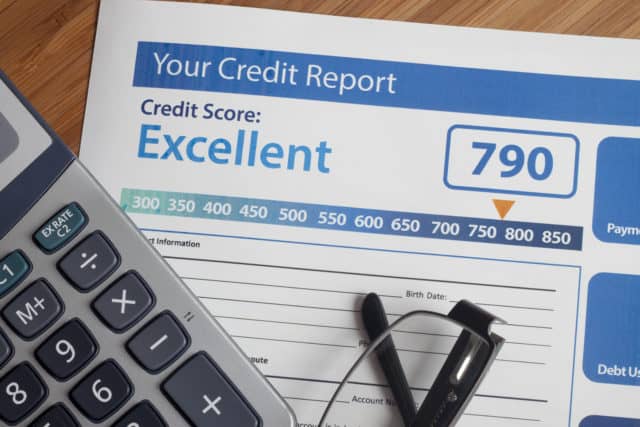Wealthtender is a trusted, independent financial directory and educational resource governed by our strict Editorial Policy, Integrity Standards, and Terms of Use. While we receive compensation from featured professionals (a natural conflict of interest), we always operate with integrity and transparency to earn your trust. Wealthtender is not a client of these providers. ➡️ Find a Local Advisor | 🎯 Find a Specialist Advisor

If you’ve never been a saver, you might have no idea where to start when it comes to saving money rather than spending it. It sounds like it should be simple, but if it were, everyone would have savings, and according to Statista, almost half of Americans didn’t, even before the crisis year of 2020, complete with the worldwide pandemic. If you’re one of the many people out there with no savings at all, there are a few tricks that might help you start that saving habit.
Begin by doing nothing
If you’ve read my previous work, you might know I’m a big fan of the no-spend month. It’s a simple concept that involves quite a significant but temporary life change. For one month, try not to spend a single cent that you don’t have to. Yes, you can still buy food and pay your rent and bills. Just don’t spend anything extra. This will involve doing a lot of nothing because a lot of what we do for entertainment and leisure involves money. But you can do nothing, right? It’s not that hard. Or you can do things that cost exactly $0. If you do manage a no-spend month, put all the money you would have normally spent aside as savings.
Incentivize yourself
You need somewhere to put the money you save during your no-spend month, and the money you save as you get your savings habit into gear. So investigate savings accounts at your bank, or elsewhere. You could use some of the extra time you have due to cutting out expensive entertainment during your no spend month.
Even if you already have a savings account, check if you can get a better deal elsewhere. See if there are any new customer incentives to open an account at a new bank, and compare interest rates between accounts. Some new customer incentives come in the form of a free gift that you’ll never use. Others involve a higher interest rate for the first 12 months. You’ll want to for the higher interest rate, obviously.
De-clutter
This may not sound like a way to kick-start a saving habit, but if you can sell just a few items you no longer use and put the money straight into that savings account, you’ll reap the satisfaction of seeing the numbers on that account go up quickly. De-cluttering can be quite addictive, once you start. You may even decide it would be a fun goal to try and add something to that new savings account every month for the first year or so, just by selling something you already own but no longer have any use for.
Know what your debt plan is
Debt can easily prevent us from starting a savings habit. It’s always tempting to pay down debt first, before saving, because debt is costing us. The trouble with this approach is that having no savings at all can be costly, too. It means that an unexpected expense can’t be met, and then we take on more debt – often expensive credit card debt – to pay for it.
It’s good to prioritize debt reduction, but it’s also fine to kickstart your savings habit while you still have some debt to pay off. You’ll feel more comfortable saving a little each month if you have a well-thought-out plan for paying off debt. So devise a debt strategy that allows you to see when current debts will be paid off. This will help you relax about saving a little money each month as well. If you’re not comfortable developing a strategy on your own, consider hiring a financial coach who can help.
Check your 401(k) if you have one
Not everyone is eligible for a 401(k) but even those who are, often don’t contribute. Pew Research has found that 48% of millennial workers with 401(k) plans available to them, don’t actually pay into them. They probably should, though, as it’s a very easy and convenient way to save. It allows you to follow the well-known pay yourself first rule, as the money is automatically deducted from each paycheck before it even lands in your bank account. If your employer matches your contribution, you should probably be saving as much as you can afford in this way.
Automate a small monthly payment into your savings account
Automated payments can simplify your finances and make saving easier. This is another way to ‘pay yourself first’, ensuring that a specified amount goes straight into your savings account each month, as soon as you’re paid. If you make it a small amount, you’re not likely to miss it and won’t have to adjust your current monthly budget too much to allow for it. But even small amounts add up over time.
These tips won’t magically provide you with a large amount of savings overnight, but they will help you get that saving habit started, and it’s easier to stick with a habit than it is to start one.
Are you ready to enjoy life more with less money stress?
Sign up to receive weekly insights from Wealthtender with useful money tips and fresh ideas to help you achieve your financial goals.
Karen Banes is a freelance writer specializing in entrepreneurship, parenting and lifestyle. She writes articles, website content, ebooks and the occasional award winning short story. Her work has appeared in a range of publications both online and off, including The Washington Post, Life Info Magazine, Transitions Abroad, Brave New Traveler, Natural Parenting Group, and Copia Magazine. Learn More About Karen
Wealthtender is a trusted, independent financial directory and educational resource governed by our strict Editorial Policy, Integrity Standards, and Terms of Use. While we receive compensation from featured professionals (a natural conflict of interest), we always operate with integrity and transparency to earn your trust. Wealthtender is not a client of these providers. ➡️ Find a Local Advisor | 🎯 Find a Specialist Advisor








